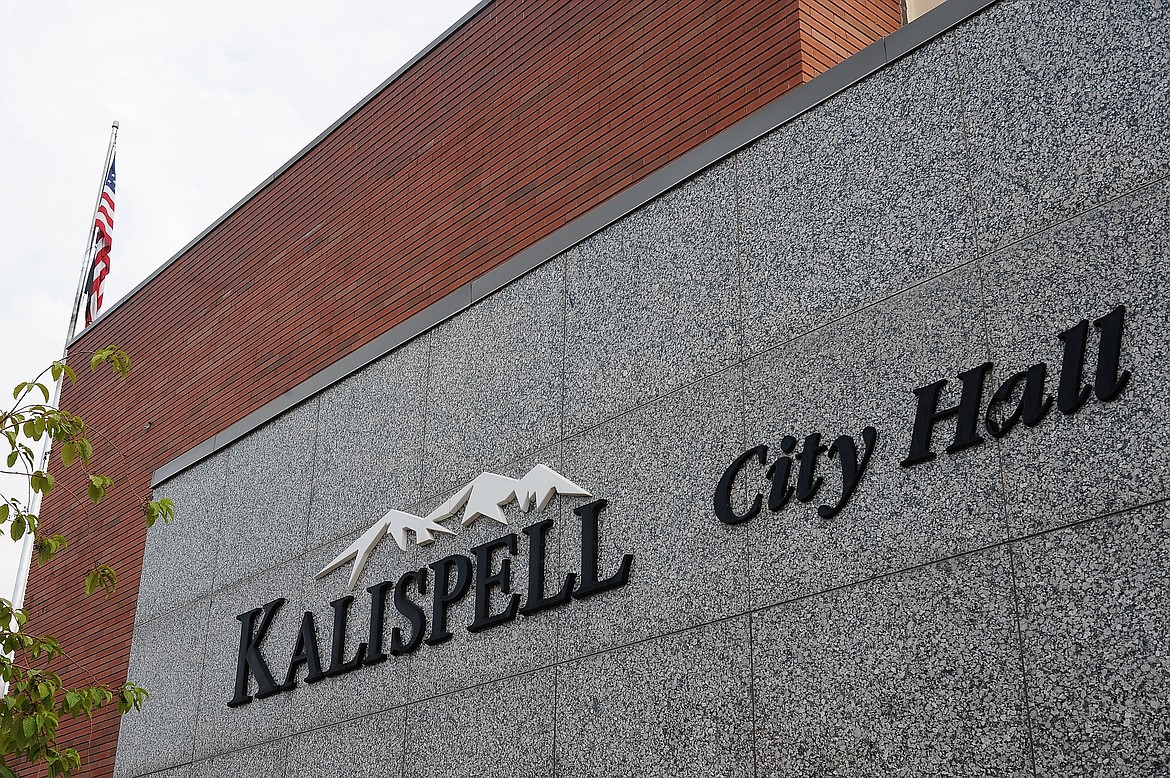Kalispell City Council approves higher water rates
Residents will pay higher water fees starting in September after the Kalispell City Council approved a new water fee schedule at its meeting Monday.
Though the vote was unanimous, several city councilors expressed discomfort with the effect on residents’ checkbooks.
Water rates will increase by 15% in fiscal years 2024 and 2025, followed by an additional 10% increase in fiscal year 2026 and 3% bump in fiscal year 2027. Fixed charges per account will increase from the present $10.99 to $16.47 over the same period.
For a household using 6,000 gallons per month — a figure that Public Works Department officials cited as average consumption — fees will rise from $32.06 monthly under the present rate schedule to $47.98 by 2026.
Mayor Mark Johnson framed the vote as a decision that had to be made to preserve the city’s water quality and existing infrastructure.
“It’s painful to make these [decisions],” Johnson said before calling for a vote on the resolution. “Math is brutal. The choice we have is don’t raise rates, let the water quality suffer, and then we pay the ultimate price with bad water, sick people. I’m not in support of the increases, but I’m in support of maintaining the system.”
Councilor Jed Fisher said he felt bad for residents with fixed incomes who would bear the burden of increased water rates, but didn’t want to see Kalispell’s water quality degrade.
“I have to buy in, we cannot let this slip and end up like Flint, Michigan,” Fisher said. “It’s something that regrettably has to happen.”
City officials proposed the increases to pay for capital improvements to the municipality’s water system, which they say have grown dramatically in cost over the past three years.
Councilor Ryan Hunter called to delay the vote while Council reexamined the city’s water impact fee structure. Water impact fees are paid by property developers and are calculated to address the costs of new growth on the city’s infrastructure.
Council voted in 2020 to slash impact fees in half despite a study that recommended a significant increase, a measure Hunter opposed at the time. Hunter had also called for a hearing on the matter in June, but the mayor dismissed his proposal, saying that it was not appropriate at that time and would require a new study.
At the Aug. 7 meeting, the pair again sparred over impact fees, with Hunter asserting that the Council could use the previous study, which he said remained valid under state law, to reassess the fees.
Johnson said he’d prefer to wait for a new study next year before revisiting the topic.
Supporters of the 2020 decision to reduce the fees, including the mayor, said that the move would incentivize the construction of new housing and bring housing costs down.
Hunter questioned the outcome of the decision, saying that development in the area has matched national rates since the fees were reduced. Developers must pay their fair share, he said. Increasing rates to the 2019 level would show residents that Council was not giving preferential treatment to developers, Hunter argued.
Councilor Chad Graham, who has long championed reducing the fees as a key to increasing housing affordability in the city, said that Hunter can’t claim to be a supporter of affordable housing and call for an increase in the fees.
Hunter pushed back, pointing to several other affordable housing initiatives he has brought to the Council in the past, including prioritizing deed restricted projects, proposing the use of city-owned parking lots for affordable development and the use of tax increment financing measures to fund housing. He also said he’d support keeping impact fees lower for affordable housing than for market rate development.
None of these proposals have gained any traction among Hunter’s colleagues.
City Manager Doug Russell pointed out that impact fee revenue cannot be dedicated to paying down the city’s existing debt under state law, and that the increased revenue generated from ratepayers monthly bills will also go to servicing the city’s existing debt obligations. In previous hearings on the rate hikes, city officials cited inflation and rising construction costs as the reason behind the proposal.
Russell did not respond to questions about what portion of the newly generated revenue would go toward debt service before press time.
COUNCIL ALSO approved major subdivision layout for Pioneer Estates, a proposed 22-lot residential subdivision on roughly 6 acres on the south side of Two Mile Drive, and final plat for Kalispell North Town Center Phase 4, a 10-lot commercial development.
Also approved was a permit for restaurant Casa Mexico’s proposed 78-spot parking lot expansion, which would allow the eatery to expand into a portion of the building to the south to provide a larger kitchen and event area.
Finally, Council appointed George Giavasis and Steve Blazer to the Business Improvement District and Tourism Business Improvement District boards, respectively.
Reporter Adrian Knowler can be reached at 758-4407 or aknowler@dailyinterlake.com.


